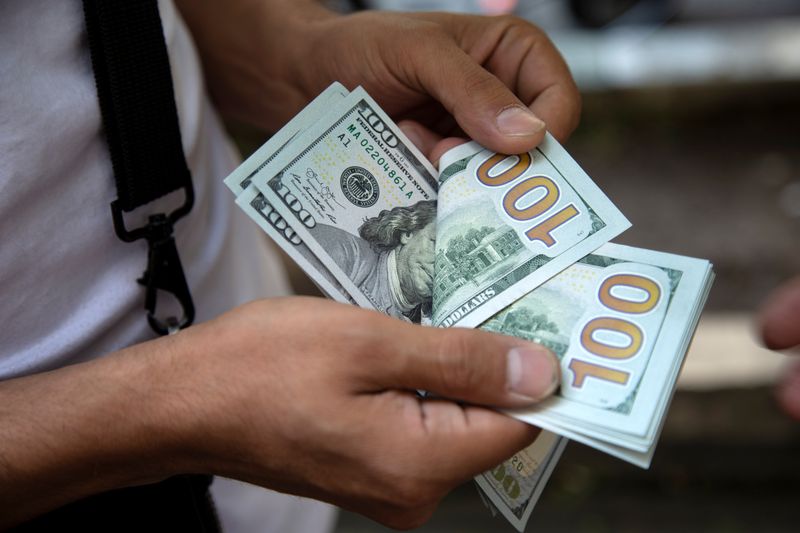By Gina Lee
Investing.com – The dollar was up on Tuesday morning in Asia, remaining near a four-and-a-half-year high against the yen. Incumbent U.S. Federal Reserve Chair Jerome Powell’s appointment to a second term increased bets that the U.S. will hike interest rates quicker than expected.
The U.S. Dollar Index Futures that tracks the greenback against a basket of other currencies inched up 0.03% to 96.573 by 11:53 PM ET (4:53 AM GMT).
The USD/JPY pair was up 0.22% to 115.11. Against the yen, the greenback surpassed the record of 114.97 hit last week, the highest level since March 2017. Japanese markets are closed for a holiday.
The AUD/USD pair inched down 0.03% to 0.7220. The NZD/USD pair was down 0.38% to 0.6929, with the Reserve Bank of New Zealand to hand down its policy decision on Wednesday.
The USD/CNY pair inched up 0.02% to 6.3854 while the GBP/USD pair inched down 0.05% to 1.3390.
Investors also continued to digest U.S. President Joe Biden’s choice of Powell to head the Fed over Lael Brainard. Considered the more dovish of the pair, Brainard was promoted to Fed vice-chair.
Powell’s renomination reinforced market expectations of interest rate hikes in 2022 when the Fed finishes its asset tapering program. Market bets on the pace of central banks’ asset tapering and interest rate hikes have driven currency markets recently.
"Powell’s nomination for a second term will leave markets comfortable pricing in Fed lift-off from July 2022. At least three Fed officials have now openly discussed speeding up asset tapering too," Westpac analysts said in a note.
The U.S. central bank may need to speed up the removal of monetary stimulus in response to strong employment gains and surging inflation, which could lead to a quicker-than-expected interest rate hike, said Fed Bank of Atlanta President Raphael Bostic.
"Meanwhile, COVID-19 suppression measures are being implemented in Europe again, making for a stark contrast," the Westpac note added.
The number of COVID-19 cases in the continent is rising, with Austria under a full lockdown since Monday and Germany considering tighter restrictive measures. The euro was at $1.124, around a 16-month low. It has fallen 2.8% so far in November, also hurt by the European Central Bank’s recent dovish tone.
